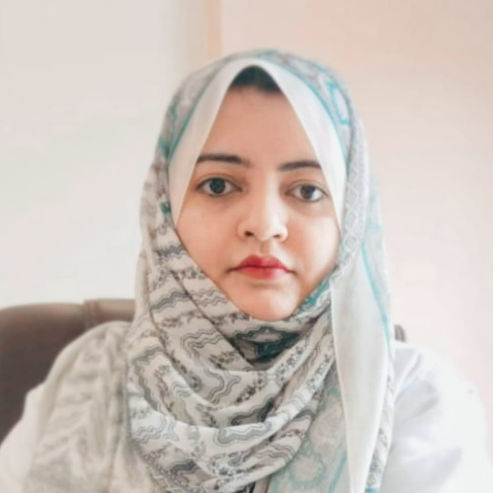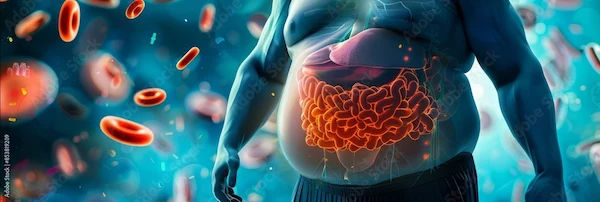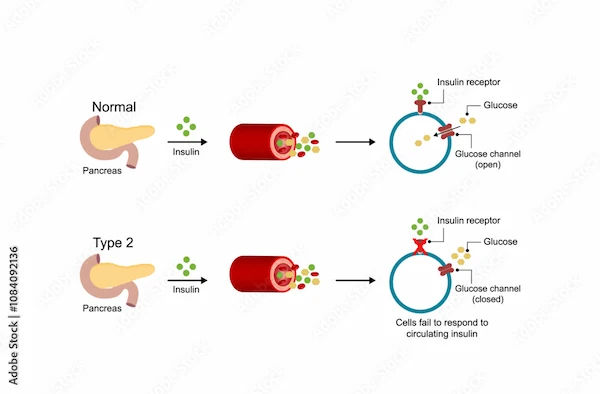How To Reduce Diabetes Without Medicine?
Discover natural ways to reduce diabetes without medication through diet, exercise, weight management, and lifestyle changes. Improve blood sugar control safely and effectively with sustainable, drug-free methods.

Written by
Last updated on 3rd Jul, 2025
Introduction
Living with diabetes can be challenging, but the good news is that you can manage and even reduce your blood sugar levels without relying solely on medication. By making simple yet effective lifestyle changes, you can take control of your health and improve your well-being. Here’s a friendly guide to help you understand how to reduce diabetes naturally.
Understanding Diabetes
Diabetes is a condition where your body either doesn’t produce enough insulin (Type 1) or cannot use insulin effectively (Type 2). Insulin is a hormone that helps regulate blood sugar levels. When insulin doesn’t work properly, sugar builds up in the blood, leading to high blood glucose levels, which can cause serious health complications over time.
While Type 1 diabetes requires insulin therapy, Type 2 diabetes can often be managed- and sometimes even reversed- through lifestyle modifications.
How to Reduce Diabetes Without Medicine?
Managing diabetes without medication is possible for many people through sustained lifestyle changes that focus on diet, exercise, weight control, and stress reduction.
1. Eat a Balanced, Diabetes-Friendly Diet
Your diet plays a crucial role in managing diabetes. Focus on:
High-fiber foods: Whole grains, vegetables, fruits (in moderation), and legumes help slow sugar absorption.
Lean proteins: Chicken, fish, tofu, and beans keep you full without spiking blood sugar.
Healthy fats: Avocados, nuts, seeds, and olive oil support heart health.
Low-glycemic index (GI) foods: These release sugar slowly into the bloodstream (e.g., oats, quinoa, sweet potatoes).
Avoid:
Sugary drinks, sweets, and processed foods.
Refined carbs like white bread, pasta, and rice.
Excessive fried or fatty foods.
Consult Top General Physicians
2. Stay Active with Regular Exercise
Physical activity helps your body use insulin more efficiently and lowers blood sugar. Aim for:
30 minutes of moderate exercise (walking, swimming, cycling) at least 5 days a week.
Strength training (2-3 times a week) to improve muscle glucose uptake.
Simple movements: Take short walks after meals to help control post-meal sugar spikes.
3. Maintain a Healthy Weight
Excess weight, especially around the abdomen, increases insulin resistance. Losing even 5-10% of your body weight can significantly improve blood sugar control.
4. Stay Hydrated
Water helps flush out excess sugar through urine and prevents dehydration, which can raise blood sugar levels. Avoid sugary drinks and opt for water, herbal teas, or infused water with lemon or cucumber.
5. Get Enough Sleep
Poor sleep affects insulin sensitivity and increases cravings for unhealthy foods. Aim for 7-9 hours of quality sleep per night.
6. Manage Stress Effectively
Stress hormones like cortisol can raise blood sugar levels. Try:
Deep breathing exercises
Yoga or meditation
Engaging in hobbies you enjoy
7. Monitor Blood Sugar Regularly
Keeping track of your glucose levels helps you understand how food, exercise, and stress affect your body. This way, you can make necessary adjustments.
8. Quit Smoking and Limit Alcohol
Smoking worsens insulin resistance and increases diabetes complications.
Alcohol can cause blood sugar spikes or drops- consume in moderation and avoid sugary mixers.
9. Try Natural Remedies (With Caution)
Some natural supplements may help, but always consult your doctor first:
Cinnamon: May improve insulin sensitivity.
Fenugreek seeds: Can help lower blood sugar.
Apple cider vinegar: May reduce post-meal glucose spikes.
When to Seek Medical Help?
While lifestyle changes can significantly improve diabetes, some cases may still require medication. Consult your doctor if:
Your blood sugar remains high despite lifestyle changes.
You experience symptoms like extreme thirst, frequent urination, or unexplained weight loss.
You need personalized guidance on managing diabetes.
Conclusion
Managing diabetes without medicine is possible with the right approach. By eating well, staying active, and adopting healthy habits, you can keep your blood sugar in check and live a fuller, healthier life. If you need expert advice, consider booking a consultation with a diabetes specialist on Apollo 24|7. They can help you create a personalized plan tailored to your needs.
Consult Top General Physicians
Consult Top General Physicians

Dr. J T Hema Pratima
General Practitioner
9 Years • MBBS
Chennai
Apollo 24|7 Clinic - Tamilnadu, Chennai
(250+ Patients)

Dr. M L Ezhilarasan
General Practitioner
6 Years • MBBS
Visakhapatnam
Apollo 24|7 Clinic - Andhra Pradesh, Visakhapatnam

Dr. Shaik Abdul Kalam
General Practitioner
3 Years • MD (Physician)
Visakhapatnam
Apollo 24|7 Clinic - Andhra Pradesh, Visakhapatnam
(100+ Patients)

Dr Summaiya Banu
General Practitioner
8 Years • MBBS
Hyderabad
Apollo 24|7 Clinic, Hyderabad
(150+ Patients)

Dr. Mohammed Kamran
General Practitioner
5 Years • MBBS, FIDM
Nashik
Apollo 24|7 Clinic - Maharashtra, Nashik
Consult Top General Physicians

Dr. J T Hema Pratima
General Practitioner
9 Years • MBBS
Chennai
Apollo 24|7 Clinic - Tamilnadu, Chennai
(250+ Patients)

Dr. M L Ezhilarasan
General Practitioner
6 Years • MBBS
Visakhapatnam
Apollo 24|7 Clinic - Andhra Pradesh, Visakhapatnam

Dr. Shaik Abdul Kalam
General Practitioner
3 Years • MD (Physician)
Visakhapatnam
Apollo 24|7 Clinic - Andhra Pradesh, Visakhapatnam
(100+ Patients)

Dr Summaiya Banu
General Practitioner
8 Years • MBBS
Hyderabad
Apollo 24|7 Clinic, Hyderabad
(150+ Patients)

Dr. Mohammed Kamran
General Practitioner
5 Years • MBBS, FIDM
Nashik
Apollo 24|7 Clinic - Maharashtra, Nashik


